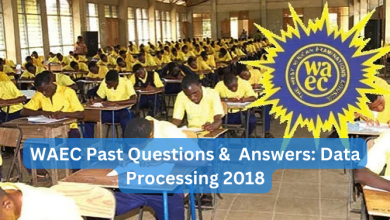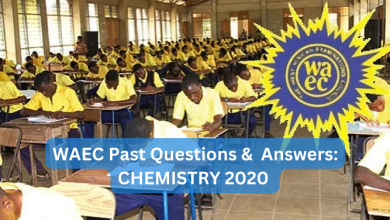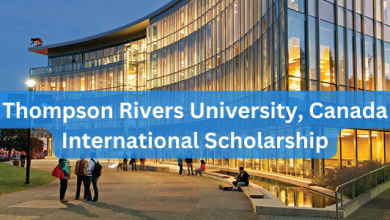WAEC Past Questions & Answer: GOVERNMENT 2022

Welcome to our WAEC past question and answer series. In this post, we will be sharing Government 2022 past questions and their answers for various subjects. Stay tuned enjoy while learning.
1. Which political system allows only one ideology for the state?
A. socialism
B. aristocracy
C. communalism
D. capitalism
2. In a representative government, citizens exercise their political power
A. directly
B. indirectly
C. in reverence for the political system
D. under undue political pressure
3. The essence of the concept of devolution is to cater for the interest of the
A. ruling government
B. majority
C. minority
D. rule of law
4. A country’s constitution may be derived from which one of the following sources?
A. Educated elites
B. Civil society organisations
C. civil disobedience
D. Customs and conventions
5. One major problem associated with the cabinet system of government is the
A. abuse of power
B. frequent change of government
C. large number of ministers
D. supremacy of the executive
6. Representative government around the world pay attention to public opinion because of the following factors except
A. protection of the government from media scrutiny
B. indication of government in good standing with the people
C. provision of feedback on implementation of government policies
D. national security concerns
7. The determination and execution of government policies is the core function of
A. Public Complain Commission
B. Public Service Commission
C. Civil Service
D. Judicial Service
8. Public corporation has a legal personality which means that
A. no legal suit can be brought against
B. it can sue and can be sued
C. it has ultimate power to make its own laws
D. there is a legal department that represents it
9. Local Government authorities may not receive cooperation from the local people due to the issue of
A. top bottom approach to development
B. accessibility to internet facilities
C. lack of support for the ruling government
D. non availability of spiritual centres
10. Delegated legislation can be controlled by
A. report writing
B. press conferences
C. parliamentary question time
D. threat of secession
11. A one party system imposed by law with all other parties proscribed is
A. a social party system
B. a de jure one party system
C. a communist political system
D. an elitist party system
12. Multi-party system is saddled with the problem of
A. divisiveness
B. limited choice
C. weak opposition
D. political consciousness
13. One of the importance of voting in a democracy is that, it
A. is less expensive
B. ensures development for all voters
C. commits citizens to the political system
D. ensures winner takes all policy.
14. An electoral system in which the electorate elects a small group of people who in turn elects political office holders is known as
A. general election
B. second ballot system
C. Electoral college
D. local election
15. Most pressure groups especially in West Africa fail to achieve their goals as a result of
A. good governance
B. charisma of the president
C. transparency of the legislature
D. corrupt leadership
16. A pressure group which resorts to violence as a means of pressing home its demands is described as
A. anomic
B. associational
C. labour
D. attitudinal
17. Press control is necessary for a state particularly in the area of
A. the economy
B. auditor general’s report
C. state security and secrets
D. foreign trade
18. The media helps to enrich discourse on national issues through its
A. marketing
B. editorial comments
C. sales and advertisement
D. correspondents
19. Information dissemination and communication in a political environment had been made faster and easier with the advent of
A. educated practitioners
B. press censorship
C. government spokesmen
D. social media
20. The passing of laws by an arm of government to regulate society is the function of the
A. judiciary
B. executive
C. legislature
D. police
21. Militant nationalism in British West Africa after World War II sought to
A. kill British nationals
B. overthrow colonialism
C. stop the export of raw materials
D. stop the denigration of the African culture.
22. Proto-nationalism was a movement limited to the demands for
A. immediate end to colonialism
B. reforms of the political class and respect for African religion
C. western education
D. social amenities and political participation
23. The youth movement across British West African territories served as a spring board for the formation of
A. militant groups to fight and kill British officials
B. political parties to champion the course of self-rule
C. committees to represent the people
D. associations in pursuit of justice for the people
24. A country’s foreign policy is foremost driven by
A. economy
B. location
C. natural resources
D. national interest
25. The first inter-territorial political movement organised in the 1920s which sought to bring all the British West African territories together to fight the colonial establishment was the
A. Aborigines Right Protection Society
B. West African Youth League
C. National Congress of British West African
D. WestAfrican Students Union
26. The African Union is unable to play its role on the global political scene very well due to the
A. inadequate system of education
B. low level of wages in the member countries
C. Outbreak of pandemic on the African continent
D. divided loyalty among member states.
27. Which of the following options does the Commonwealth of Nations commit resources to?
A. Use of a common currency
B. Superiority of the British Crown
C. British Leadership on all matters of diplomacy
D. Promotion of representative democracy
28. Which summit drew the road map for the implementation of the African Union?
A. Sirte Summit
B. Lusaka Summit
C. Lome Summit
D. Lagos summit
29. One of the benefits which the West African state derive from the United Nations is
A. equal opportunities of appointments to its highest office
B. permanent membership of the Security Council
C. greater access to all the organs of the United Nations
D. total eradication of poverty from the African continent
30. The Atlantic Charter gave birth to the
A. Commonwealth of Nations
B. Allied powers
C. United Nations
D. North Atlantic Treaty Organisation
31. Which of the following factors does not influence a country’s foreign policy?
A. Human resources
B. Geographical location
C. System of education and number of universities
D. International laws and conventions
32. In which political system does the government control every aspect of a citizen’s life?
A. communism
B. Dictatorship
C. Totalitarianism
D. Aristocracy
33. The administrative head of the ministry is the
A. official of the ruling government
B. general manager
C. permanent secretary
D. chief coordinating officer
34. The sovereignty of a state can be limited to a great extent by
A. Rule of law
B. separation of powers
C. International Laws and conventions
D. Legislative Assembly
35. A coalition government is a common feature of a
A. two party systems
B. multi-party system
C. one party system
D. non-party system
36. The appointment of judges is based on the recommendation of the
A. Civil Service Commission
B. Public Service Commission
C. Eminent persons in society
D. Judicial Service
37. Which of the following options is not a function of political parties?
A. Policy implementation
B. Political socialisation
C. Political education
D. Aggregation of interest
38. In an election, secret ballot is described as the process where the voter
A. is screened off to conceal the vote
B. cast the vote in a sealed box
C. in assisted to cast the vote
C. is searched before casting the vote
39. In which system of government does the legislature pass a vote of no confidence in the government?
A. Federal
B. Cabinet
C. De jure
D. Monarchical
40. The concept of social justice implies that the state must ensure
A. sharing of political power with opponents
B. security for multi- national businesses
C. equality of citizens
D. fairness to foreign nationals
41. The basic human right of citizens in a state are
A. freedom of movement, free education and free health
B. free social services, speech and religion
C. right to life, liberty and property
D. Right to higher education, property and freedom of thought
42. A quasi-federal structure is so arranged in order for the
A. centre to coordinate national level programmes
A. citizens to have dual allegiance and dual citizenship
B. component units to breakaway at will
D. president to amend the constitution at will
43. When a superior court declares an action of the executive ultra-vires, it means that
A. the executive should leave power
B. a vote of no confidence had been passed on the government
C. the judiciary is more powerful than the executive
D. the action is illegal and of no effect
44. Which of the following options does not constitute the main objectives of the United Nations?
A. The maintenance of international peace and security
B. The promotion of the well-being of the peoples of the world
C. International cooperation
D. The use of force to comply with its provisions
45. The Economic Community of West African States was established with the following aims except to
A. use force to depose unconstitutional regimes
B. improve the living standard of its people
C. contribute to the progress and development of the African continent
D. foster relations among member states
46. The process of international integration arising from the inter-change of world views, products, ideas and other aspects of culture is known as
A. national interest
B. globalisation
C. geopolitics
D. interest aggregation
47. One negative effect of colonialism on the people of West Africa over the years is the
A. introduction of modern idea of governance
B. creation of large political units
C. change of the socio-political systems of living
D. development of political institutions
48. The Council of Elders in the pre-colonial political institutions of West Africa best served on the Council as
A. warriors of the state
B. go-between the gods and the people
C. custodians of the wealth of the state
D. representative of the commoners
49. Public corporations are struggling in the West African States as a result of
A. heavy social and political cost
B. private-public partnership
C. public scrutiny and accountability
D. direct foreign investment
50. The following options are today the biggest threat to the democracy of West African State except
A. election disputes and related violence
B. military intervention in politics
C. youth unemployment
D. non involvement of traditional rulers in politics.
Answers To Questions
- A
- A
- B
- D
- A
- A
- A
- B
- C
- C
- C
- A
- C
- C
- D
- A
- C
- B
- D
- C
- B
- A
- B
- D
- C
- D
- D
- B
- A
- C
- C
- C
- C
- C
- B
- D
- A
- B
- B
- C
- C
- B
- B
- D
- A
- B
- B
- D
- C
- B





